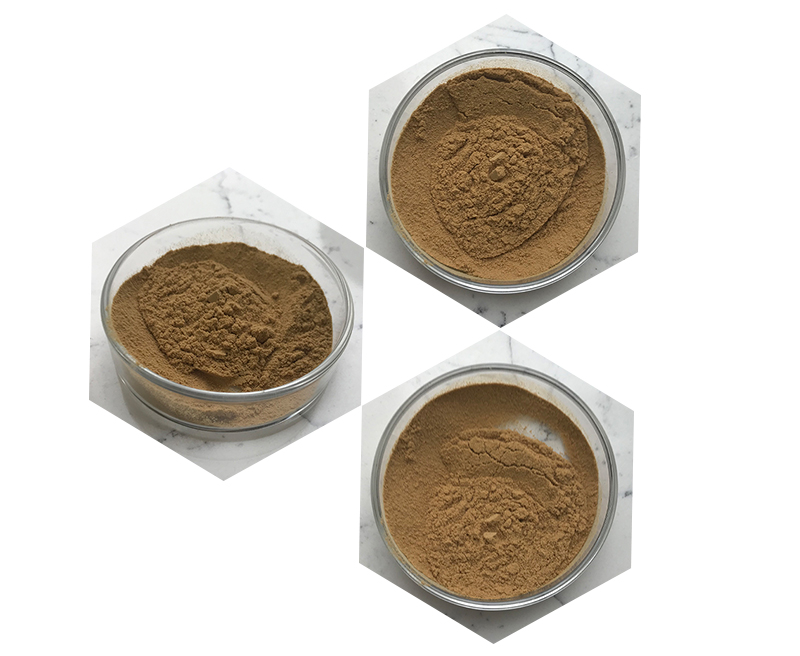Phyllanthus emblica extract, commonly known as Indian gooseberry or amla, is a plant widely used in traditional medicine and known for its rich phytochemical content. The extract of Phyllanthus emblica contains various bioactive compounds, primarily tannins, flavonoids, alkaloids, and vitamins, especially vitamin C. Here is an overview of its chemical structure and physical properties:
Chemical Composition
1.Ascorbic Acid (Vitamin C)
Structure: C6H8O6
Properties: A water-soluble vitamin with strong antioxidant properties.
2.Tannins
Types: Ellagitannins and Gallotannins
Structure: Complex polyphenolic molecules; examples include Emblicanin A and B.
3.Flavonoids
Common Compounds: Quercetin, Kaempferol
Structure: Polyphenolic structures with multiple hydroxyl groups.

4.Alkaloids
Types: Phyllantine, Phyllantidine
Structure: Heterocyclic nitrogenous compounds.
5.Other Constituents:
Gallic Acid: C7H6O5
Ellagic Acid: C14H6O8
Physical Properties
1.Appearance: The extract is typically available as a brownish powder or liquid.
2.Solubility:
Water: High solubility due to the presence of water-soluble components like vitamin C and certain tannins.
Ethanol: Moderate solubility, often used as a solvent for extracting flavonoids and other polyphenols.
3.Taste: Characteristically sour due to the high ascorbic acid content and astringent because of tannins.
4.Odor: The extract has a mild, fruity smell.
5.pH: The pH of aqueous solutions of Phyllanthus emblica extract tends to be acidic, typically ranging from 3 to 4, due to the presence of ascorbic and gallic acids.
Biological Activities
Antioxidant: Strong antioxidant activity primarily due to ascorbic acid, tannins, and flavonoids.
Anti-inflammatory: Exhibits anti-inflammatory properties, which are attributed to its polyphenolic content.
Antimicrobial: Possesses antimicrobial activities against a range of pathogens.

Uses
Cosmetics: Used in skincare products for its antioxidant properties.
Nutraceuticals: Incorporated into dietary supplements for its high vitamin C content.
Traditional Medicine: Utilized in Ayurveda for its health-promoting properties.
Summary
Phyllanthus emblica extract is a rich source of bioactive compounds, with ascorbic acid being the most notable. The extract has diverse physical properties that make it suitable for various applications in health, nutrition, and cosmetics. Its chemical complexity and high antioxidant potential make it a valuable natural ingredient.
